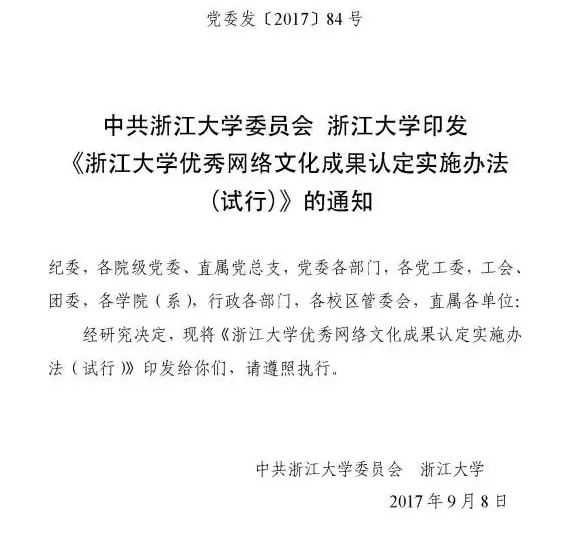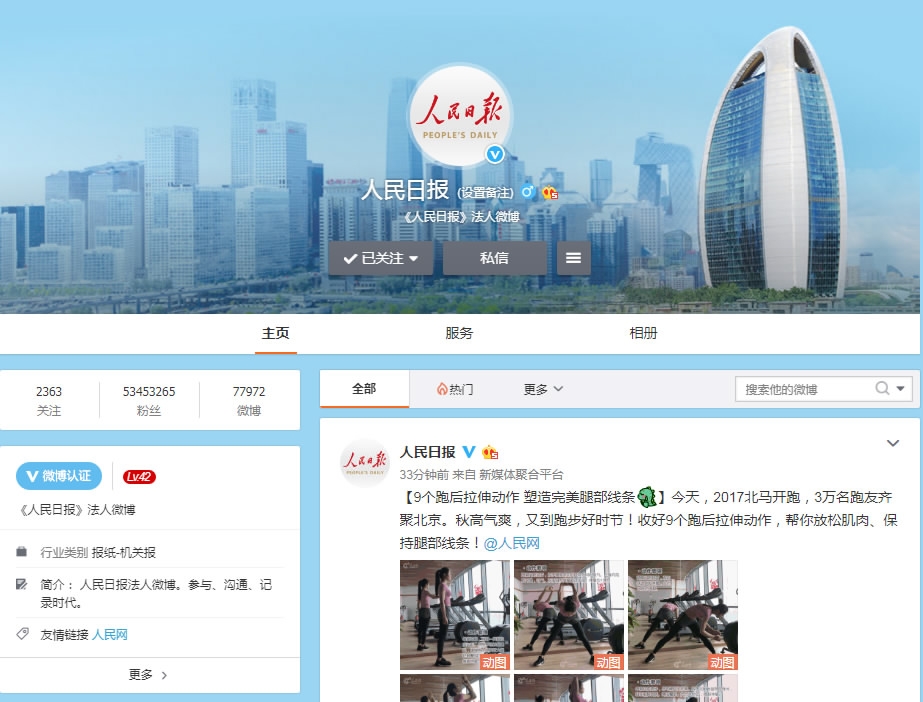
China
14:51, 17-Sep-2017
Popularity of research papers online to be part of academic evaluation in China’s university
CGTN

The number of shares and likes a research paper will get on social media can now be part of academic evaluation in a Chinese university.

The regulation released by Zhejiang University on its official WeChat account on September 8 /WeChat screenshot
The regulation released by Zhejiang University on its official WeChat account on September 8 /WeChat screenshot
On its official WeChat account, Zhejiang University unveiled earlier this month a new regulation saying academic papers published and re-posted on China's Twitter-like Weibo, WeChat and mobile applications of over 10 state or mainstream media outlets are expected to be recognized just like the ones on China's prestigious academic journals.

The official Weibo account of People's Daily has over 53 millions of followers. /Weibo screenshot
The official Weibo account of People's Daily has over 53 millions of followers. /Weibo screenshot
Essays that have been viewed for over 100,000 times on the official WeChat accounts where they are posted can also be deemed as an academic success equivalent to the ones published on core national periodicals.
In addition to the state and mainstream media organizations like People’s Daily, Xinhua News Agency, China Daily and Beijing News, popularity of the papers on commercial news portals like Sohu, Sina and Tencent will also serve as a benchmark of research achievements under the new regulation.
The move initiated by Zhejiang University, one of the most prestigious universities in China, came after a meeting on ideological and political work in China's universities and colleges last year led by Chinese President Xi Jinping.

Chinese President Xi Jinping speaks at a two-day meeting on ideological and political work in China's universities and colleges on December 8, 2016. /Xinhua Photo
Chinese President Xi Jinping speaks at a two-day meeting on ideological and political work in China's universities and colleges on December 8, 2016. /Xinhua Photo
Underlining improved quality of higher education, the conference also called on colleges to integrate influence of research papers on the Internet into academic evaluation system for professors and campus students.
The amount of papers published on authoritative academic journals have for long remained the most important standard for teachers to get their titles promoted among Chinese universities.
According to a report by People’s Daily in 2012, associate professors in Shanghai’s Fudan University, also a world leading university, had to publish at least 10 theses with several of them picked up by core journals from home and abroad so as to be promoted to professors. In 2010, the campus even introduced a more comprehensive evaluation mechanism.

Internet Photo
Internet Photo
The controversial single criterion for scientific personnel assessment has also reportedly led to some academic paper frauds. In 2015, more than 100 Chinese papers were withdrawn by Modern Biology, Springer Nature and Elsevier for the fake peer reviews forged by third-party institutions.
In June this year, 107 Chinese papers were retracted from Tumor Biology, an academic journal published by Springer Nature also for fabricated peer reviews, stirring up worldwide backlash and once again shed light on the misconducts resulted from the “paper-only” evaluation system.

Response by Springer Nature on the retraction of 107 Chinese papers /CGTN Photo
Response by Springer Nature on the retraction of 107 Chinese papers /CGTN Photo
The initiative by Zhejiang University where academic achievements will be assessed synthetically by media popularity instead of prestigious scientific journals only, could help boost academic freedom in higher education institutions, Zhu Wei, a professor in communication studies from China University of Political Science and Law noted in a signed article on the Beijing News.
He further noted that the evaluation system also keeps up with the times, by taking into account the Internet against the backdrop where online media has played an increasing role in the information dissemination.

SITEMAP
Copyright © 2018 CGTN. Beijing ICP prepared NO.16065310-3
Copyright © 2018 CGTN. Beijing ICP prepared NO.16065310-3